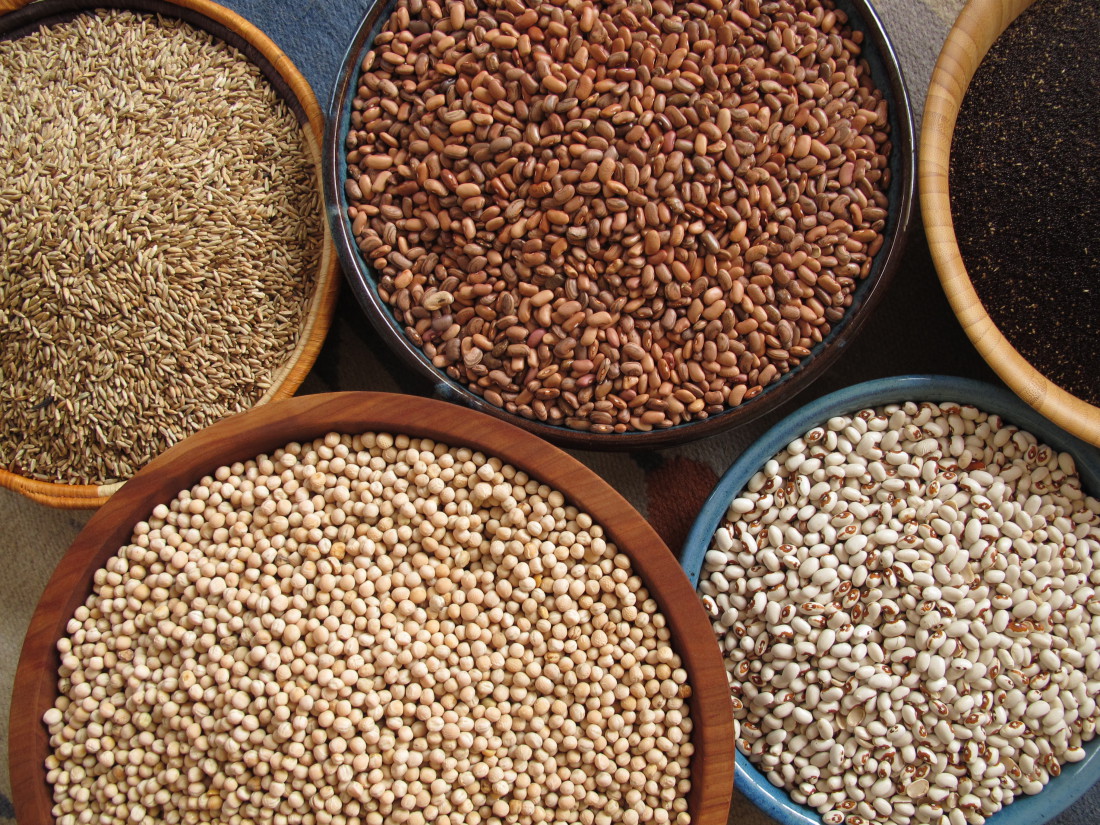PRESS RELEASE:
Have you ever wondered how to meet the gap that exists between what you can grow in your garden, and everything that you actually consume? Mark Dempsey has too. After earning a graduate degree in soil microbiology, Dempsey worked in grain production and research at Penn State University. While most of that work was focused just on agronomics, he spent a lot of time trying to understand how to match our human nutritional needs with what we actually grow, which is something rarely considered in grain production. This led him to experiment with growing grains on a small scale, with a focus on legumes such as beans and peas, but also plenty of more common grains such as wheat and corn.
Dempsey has taken what he learned from working in large-scale grain production and adapted it back to the scale of the small landholder. “Grains offer so much potential,” Dempsey says, which he plans to share with participants at Living Web Farms’ daylong workshop on August 20th. He’ll cover production for eating, processing into value-added products (hummus, for example), and supplementing conventional animal feeds. “These plants offer an extremely good way to grow protein, from a land-based perspective,” Dempsey adds.
He’s referring to efficiency, in terms of calories harvested versus calories expended in growing, as well as soil health. This, in and of itself should be interesting to growers, from those homesteaders interested in a self-sufficient food supply, to commercial chicken producers looking to cut feed costs.
Participants can expect to learn about all aspects of production for several small grain crops, including barley, oats, wheat, dent corn, sorghum, peas, dry beans, and buckwheat. Dempsey has been tending plots of these crops in one of Living Web Farms’ fields, in preparation for the class, so that students can see production first-hand. He will cover establishment of the plants, fertility needs, maintenance, harvest, post harvest (including threshing), and storage. In addition, the class will review some numbers to look at total land required and cost benefit, to address questions about economy of scale.
To register for the class, visit livingwebfarms.org




Before you comment
The comments section is here to provide a platform for civil dialogue on the issues we face together as a local community. Xpress is committed to offering this platform for all voices, but when the tone of the discussion gets nasty or strays off topic, we believe many people choose not to participate. Xpress editors are determined to moderate comments to ensure a constructive interchange is maintained. All comments judged not to be in keeping with the spirit of civil discourse will be removed and repeat violators will be banned. See here for our terms of service. Thank you for being part of this effort to promote respectful discussion.